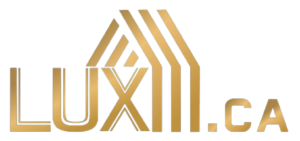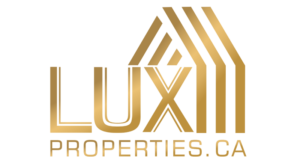Buying Houses Around Niagara Falls
Buying Houses Around Niagara Falls Canada is both exciting and smart. The area offers beauty, history, and investment potential. Niagara Falls is one of Toronto nearby’s most famous landmarks. Buying Houses Around Niagara Falls Canada means living near natural wonders. The falls attract millions of visitors every year. This creates great opportunities for homeowners and investors. Buying Houses Around Niagara Falls Canada offers peaceful neighborhoods. Homes are often spacious and surrounded by greenery. Property values are steadily increasing in the region. Buying Houses Around Niagara Falls Canada is ideal for families. The schools are good and communities are welcoming. Healthcare facilities are modern and well-equipped.
Buying Houses Around Niagara Falls Canada suits retirees too. The calm environment and scenic views are perfect. There are parks, trails, and golf courses nearby. Buying Houses Around Niagara Falls Canada supports an active lifestyle. The local economy is stable and tourism-driven. Businesses thrive thanks to steady foot traffic. Buying Houses Around Niagara Falls Canada also means access to wineries. The region is known for wine and fresh produce. Farmers’ markets and local shops add charm. Buying Houses Around Niagara Falls Canada connects you to vibrant culture. The town hosts events, festivals, and art shows. Residents enjoy both quiet living and fun activities.
Buying Houses Around Niagara Falls Canada is affordable compared to big cities. You get more space for your money. Transportation options are reliable and growing. Buying Houses Around Niagara Falls Canada is also great for short commutes. Real estate agents in the area offer expert advice. They understand the local market trends well. Buying Houses Around Niagara Falls Canada could be your best move. Start your journey today by exploring listings. Discover a home that suits your lifestyle and goals. Buying Houses Around Niagara Falls Canada is truly a unique opportunity.
Buying Houses Around Niagara Falls : Available Types And Prices
Niagara Falls is more than just a tourist destination. It is also a growing residential area. Many people choose to live here for its beauty and affordability. The city offers a calm lifestyle with access to nature. Moreover, it is close to the US border, which adds convenience. Over time, the real estate market has expanded. Different home types are available for all kinds of buyers. Prices vary based on location and property size. Therefore, it’s essential to understand the market before buying.
Single-Family Detached Homes
Detached houses are common in Niagara Falls. They are perfect for families who want more space and privacy. These homes often have yards and garages. Prices for detached homes start from CAD 550,000. However, in high-demand areas, they can go over CAD 900,000. Newer homes cost more due to modern features. Older homes are cheaper but may need repairs. Even so, they offer charm and character. Many detached homes are near parks and schools. As a result, they are ideal for families with children.
Semi-Detached Homes
Semi-detached homes are a more affordable option. They share one wall with another house. This design reduces building costs and offers better pricing. Semi-detached homes in Niagara Falls usually cost between CAD 450,000 and CAD 650,000. These homes still provide good living space. Some include basements and backyards. If you want a balance of price and privacy, they are a solid choice. Furthermore, these homes are available in both new and older neighborhoods. Buyers often consider them as starter homes.
Townhouses And Row Homes
Townhouses are growing in popularity. They are compact and easier to maintain. Most townhouses have two or three stories. Prices range from CAD 400,000 to CAD 600,000. Some newer townhouses have stylish finishes and energy-efficient systems. They often include garages or assigned parking. Townhouses are good for young couples or small families. Additionally, many townhouse communities offer shared amenities. These include playgrounds, pools, and gyms. Compared to condos, they offer more space. Yet, they require less work than detached homes.
Condominium Units
Condos are ideal for those seeking convenience. They are usually found in multi-story buildings. Many have elevators and security features. Condos in Niagara Falls cost between CAD 300,000 and CAD 500,000. Luxury units can exceed this range. Maintenance fees are added monthly. These fees cover repairs and amenities. Condos are popular with retirees and single professionals. Notably, some offer views of the falls or nearby parks. While small in size, they are efficient and modern. In addition, they require little upkeep.
Bungalows And Ranch-Style Homes
Bungalows are one-story homes, often with basements. They are great for seniors or people with mobility issues. Prices for bungalows range from CAD 450,000 to CAD 700,000. The cost depends on the location and lot size. Some ranch-style homes have large yards and long driveways. Others are in compact communities with small gardens. These homes offer easy access to all rooms. Therefore, they are suitable for aging homeowners. Though they may lack space compared to two-story homes, they provide comfort and accessibility.
Multi-Family Properties
Multi-family homes are great for investors. They include duplexes, triplexes, and fourplexes. These properties allow for rental income. Buyers live in one unit and rent the others. Prices vary from CAD 700,000 to over CAD 1 million. Some buildings are old and may need renovation. Even so, the rental demand is strong in Niagara Falls. Because tourism drives seasonal work, rental units are in demand. In addition, students and newcomers also seek affordable units. Thus, multi-family homes can be profitable long term.
Luxury Homes And Estates
Niagara Falls has some luxury homes too. These are often located on large lots. Some even offer views of the falls or nearby vineyards. Prices start around CAD 1.2 million and can exceed CAD 3 million. Features include pools, spa bathrooms, and chef-style kitchens. High ceilings, smart systems, and designer finishes are also common. Luxury buyers are drawn to privacy and comfort. Many high-end homes are in exclusive communities. For those who want a premium lifestyle, options are available. Also, proximity to golf courses and wineries adds value.
Rural And Country Homes
Just outside the city, rural homes offer peace and space. These properties may include farms, barns, or workshops. Prices begin at about CAD 650,000. Larger estates can go over CAD 1.5 million. Country homes are perfect for those who enjoy quiet and nature. They offer land for gardening or small livestock. Some even have wooded areas or streams. Although farther from urban amenities, they provide a different lifestyle. Importantly, the sense of freedom appeals to many buyers. However, maintenance and heating costs may be higher.
New Developments And Subdivisions
New home developments are rising in Niagara Falls. These planned communities feature modern homes and layouts. Many include parks, schools, and shops nearby. Builders offer various home styles and designs. Prices for new homes usually range from CAD 600,000 to CAD 850,000. Buyers may choose finishes and layouts during construction. Pre-construction homes require deposits and waiting time. Still, they offer warranties and lower repair needs. Furthermore, newer homes are more energy-efficient. Some areas even offer smart homes with advanced tech systems.
Factors That Affect House Prices
Location is a major factor in pricing. Homes closer to downtown or the falls are more expensive. Those near highways or quiet streets may also cost more. In contrast, homes farther from the core are cheaper. Size and condition also affect value. Renovated homes attract higher offers. Additionally, features like pools, finished basements, and garages add value. Market trends and mortgage rates play a role too. When rates are low, demand goes up. As a result, prices may rise. Local job growth and tourism also influence housing demand.
Rental Market And Investment Potential
Many investors buy homes in Niagara Falls for rental income. Tourist traffic creates demand for short-term rentals. Also, many students and workers need places to rent. This means steady rental opportunities. Houses with basement apartments are especially useful. Some homes are turned into duplexes for better returns. Moreover, the city allows certain zoning changes to support rentals. As tourism grows, so does the rental market. Investing in the right property can generate long-term profit. Still, investors must follow rules and local bylaws.
Tips For Buying A Home In Niagara Falls
First, define your budget and get pre-approved. This helps you move fast when you find the right home. Next, decide on the type of property that suits your lifestyle. Then, research neighborhoods and their amenities. If possible, visit homes in person. Hiring a local realtor can provide great insights. They know market trends and legal processes. Also, check the home’s condition carefully. A home inspection is always a smart idea. Finally, consider long-term plans. Will you live in the house or rent it out?
Niagara Falls offers a wide range of homes. From condos to estates, there is something for everyone. Prices are still lower than major cities like Toronto. This makes it attractive for first-time buyers and investors. The city is safe, scenic, and growing steadily. While the housing market changes over time, Niagara Falls remains a strong option. Whether you want a family home or a rental property, the area has great choices. In short, it’s a good place to invest, live, and grow.
The Legal Process of Buying Houses Around Niagara Falls
Real estate transactions in Niagara Falls follow Ontario law. Buyers must follow provincial rules and local regulations. These laws protect both buyers and sellers. It’s important to understand your legal rights before starting. Ontario’s system is fair, but it can be complex. Therefore, having professional help is essential. The law requires proper documentation for all steps. You cannot finalize a purchase without legal verification. Moreover, contracts must meet legal standards. Ignoring details can lead to delays or financial loss.
Working With A Real Estate Lawyer
A real estate lawyer is a key part of the process. They guide you through legal requirements. Most importantly, they protect your rights. Lawyers review contracts and explain hidden clauses. Without them, you might miss key issues. Also, lawyers conduct title searches. They ensure the property has no legal problems. If there are liens, your lawyer will address them. Furthermore, they help with mortgage paperwork. They coordinate with your lender and manage deadlines. Although you pay legal fees, the service is worth it.
Making An Offer To Purchase
Once you find a home, you make an offer. This is a legal document called the Agreement of Purchase and Sale. It includes price, closing date, and conditions. For example, you may ask for a home inspection. You can also include financing or appraisal conditions. If accepted, this becomes a binding contract. However, the seller can counter-offer with new terms. Your lawyer will explain each section. It’s wise to avoid rushing this part. Mistakes here can be expensive. Carefully written offers avoid future conflicts.
The Role Of Title Search And Title Insurance
Title search is essential in Ontario real estate deals. Your lawyer investigates the legal history of the property. This ensures there are no unpaid debts or disputes. If issues appear, they must be resolved before closing. Without a title search, you risk legal surprises. In addition, buyers often purchase title insurance. This protects against future legal problems. For instance, if a hidden lien appears later, you’re covered. Although optional, title insurance is strongly recommended. It offers peace of mind during and after the sale.
Understanding Land Transfer Tax
In Ontario, buyers must pay Land Transfer Tax. This is a government fee based on the home’s price. In Niagara Falls, it applies to almost all purchases. However, first-time buyers may receive a partial rebate. The tax is paid before the home closes. Your lawyer calculates and submits it on your behalf. If you’re unsure, they will explain the rules. Additionally, mortgage lenders may ask for proof of payment. As a result, handling this early avoids issues. Knowing this cost helps you plan your budget.
Closing The Deal: What Happens On Closing Day
Closing day is when ownership changes hands. Before closing, you transfer the remaining funds. Your lawyer sends the money to the seller’s lawyer. In exchange, they receive the keys and legal documents. These documents include the deed and mortgage registration. At this point, the sale becomes final. You are now the legal owner of the home. Moreover, utility accounts and taxes must be updated. Your lawyer handles this transition for you. Although closing day can be stressful, it’s usually smooth with proper planning.
Legal Costs And Fees To Consider
Buying a house includes more than just the price. You must pay legal fees and disbursements. Legal fees cover the lawyer’s services. Disbursements are extra charges like document fees. Title insurance and land transfer tax are also added. Combined, these can be several thousand dollars. However, they are necessary for a secure transaction. Your lawyer provides a full breakdown of costs. It’s smart to set aside extra money just in case. Even though it’s costly, skipping steps can lead to bigger issues later.
Dealing With Conditional Offers
Conditional offers are common in Niagara Falls. They protect buyers from unexpected problems. Popular conditions include financing, home inspection, and insurance approval. Each condition has a deadline. If unmet, the offer becomes void. This prevents you from buying a house you can’t afford. Furthermore, you may negotiate during the conditional period. For instance, if an inspection finds damage, you can ask for repairs. Or, you might lower the price. Your lawyer helps you understand the options. Conditional offers provide flexibility and safety.
Understanding Zoning And Local Bylaws
Before buying, it’s wise to check zoning laws. These rules affect how you can use the property. For example, you may not be allowed to build a second unit. Or, your plan to open a home business might be blocked. Niagara Falls has specific zoning bylaw maps. Your lawyer or agent can explain them. Also, properties near parks or conservation areas may have extra rules. You don’t want surprises after moving in. Therefore, always research zoning early. Even small restrictions can affect your future plans.
Legal Steps After The Purchase
After closing, your lawyer registers the property in your name. You’ll receive a copy of the deed. Also, you should notify the city for property taxes. Most lawyers handle this step automatically. If you bought with a mortgage, the lender registers it too. It’s also a good time to update your address. For example, with banks, insurance, and services. Additionally, keep your purchase documents safe. You may need them for future loans or legal questions. Finally, consider writing a will or updating it. Your new home is a major asset now.


